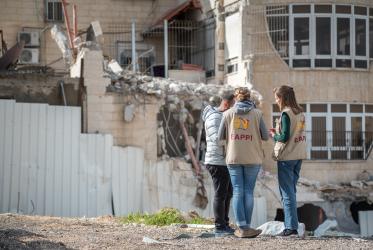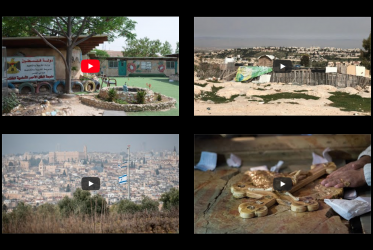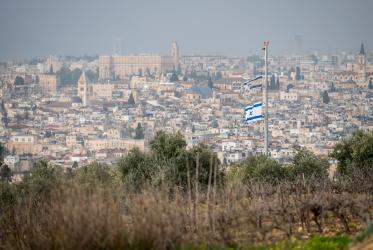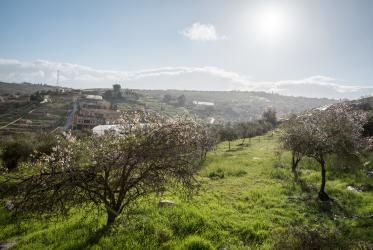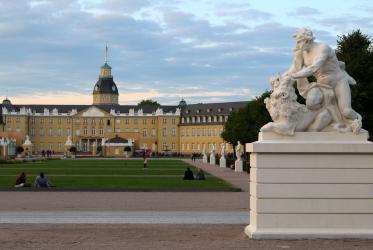Displaying 21 - 40 of 192
14 March 2022
Easter Initiative Bible Study: Home Is Sacred
14 March 2022
In East Jerusalem, “we will never give up our rights”
29 October 2021
Bedouins of Pope’s Hill fight eviction
30 March 2021
East Jerusalem: Denied citizenship and the vote
30 March 2021
Jericho - Walking in the Footsteps of Jesus
30 March 2021
As olive harvest draws to a close, who is helping the farmers?
08 December 2020
WCC executive committee maps future with hope in uncertain times
19 November 2020

